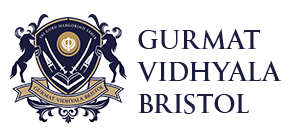July 2018
Our Safeguarding Policy
This policy applies to all staff, including senior managers and the board of trustees, paid staff, volunteers and sessional workers, agency staff, students or anyone working on behalf of Bristol Gurmat Class.
The purpose of this policy:
- To protect children and young people who receive Bristol Gurmat Class’s This includes the children of adults who use our services;
- To provide staff and volunteers with the overarching principles that guide our approach to safeguarding and child protection;
Bristol Gurmat Class believes that a child or young person should never experience abuse of any kind. We have a responsibility to promote the welfare of all children and young people and to keep them safe. We are committed to practise in a way that protects them.
Legal Framework
This policy has been drawn up on the basis of law and guidance that seeks to protect children, namely:
- Children Act 1989
- United Convention of Rights of the Child 1991
- Data Protection Act 1998
- Human Rights Act 1998
- Sexual Offences Act 2003
- Children Act 2004
- Safeguarding Vulnerable Groups Act 2006
- Protection of Freedoms Act 2012
- Children and Families Act 2014
- Special educational needs and disability (SEND) code of practice: 0 to 25 years – Statutory guidance for organisations which work with and support children and young people who have special educational needs or disabilities: HM Government 2014
- Information Sharing: Advice for practitioners providing safeguarding services to children, young people, parents and carers; HM Government 2015.
- Working together to safeguarding children; a guide to inter-agency working to safeguard and promote the welfare of children; HM Government 2015.
We recognise that:
- The welfare of the child is paramount, as enshrined in the Children Act 1989
- All children regardless of age, disability, gender reassignment, race, religion or belief, sex or sexual orientation
- Some children are additionally vulnerable because of the impact of previous experiences, their level of dependency, communication needs or other isses
- Working in partnership with children, young people, their parents, carers, and other agencies is essential in promoting young people’s welfare.
We will seek to keep children and young people safe by:
- Valuing them, listening to and respecting them
- Appointing a Designated Safeguarding Officer (DSO) for children and young people, a deputy and lead board member of safeguarding
- Adopting child protection and safeguarding practices through procedures and a code of conduct for staff and volunteers
- Developing and implementing an effective e-safety policy and related procedures
- Providing effective management for staff and volunteers through supervision, support, training and quality assurance measures
- Recruiting staff and volunteers safely, ensuring all necessary checks are made
- Recording and storing information professionally and securely, and sharing information about safeguarding and good practice with children, their families, staff and volunteers via leaflets, posters, one to one discussions
- Using our safeguarding procedures to share concerns and relevant information with agencies who need to know, and involving children, young people, parents, families and carers appropriately.
- Using our procedures to manage any allegations against staff and volunteers appropriately
- Creating and maintaining an anti-bullying environment and ensuring that we have a policy and procedure to help us deal effectively with any bullying that does arise
- Ensuring that we have effective complaints and whistleblowing measures in place
- Ensuring that we provide a safe physical environment for our children, young people, staff and volunteers, by applying health and safety measures in accordance with the law and regulatory guidance.
Contact Details
Designated Safeguarding Officer (DSO)
Mandatt Kaur
07858645022
CEOP
NSPCC Helpline
0808 800 5000
We are committed to reviewing our policy and good practice annually.


